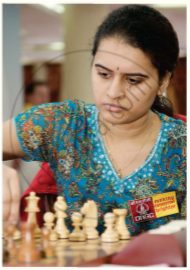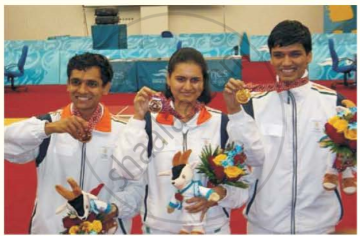Advertisements
Advertisements
प्रश्न
Read a short story about an exemplary boss.
|
Working 12 to 18 hours a day was not uncommon for scientists at the rocket launching station, Thumba. A group of such scientists was frustrated due to the work pressure and meeting their boss's demands; however, they were loyal to him. With a jolt he remembered his promise to his children. He looked for his boss who was not in his omee. Having told him just that morning. he wrapped up his work and hurried home. |
उत्तर
|
An Exemplary Boss This story highlights the unique leadership qualities of an extraordinary boss who understood the importance of balancing work and personal commitments. At the rocket launching station in Thumba, scientists often worked long hours, dedicating themselves to demanding projects. Despite the pressure, they remained loyal to their boss, driven by his leadership. One day, a scientist gathered the courage to request early leave to take his children to an exhibition. His boss granted permission without hesitation. However, engrossed in his work, the scientist lost track of time and realized he had missed his promise. Dejected, he rushed home, only to find his children were not there. To his surprise, his wife revealed that his boss had come by, taken the children to the exhibition, and fulfilled the scientist’s promise. This thoughtful act showed the boss’s empathy and understanding of his employees’ personal lives. Such leadership not only fostered loyalty but also inspired the scientists to give their best despite the challenges. The boss’s actions underscored the power of empathy and trust, proving that great leaders lead by example, even in the smallest of gestures. |
APPEARS IN
संबंधित प्रश्न
Answer these question in 30–40 words.
When and how did Bismillah Khan get his big break?
Thinking about the Poem
“…whenever we are told to hate our brothers…” When do you think this happens?
Why? Who ‘tells’ us? Should we do as we are told at such times? What does the poet say?
Avik, a correspondent for his school magazine, interviews Grandmaster Koneru Bumpy. Let us read :
INTERVIEW WITH KONERU BUMPY
Avik : Good morning, Ma'am! Congratulations on your achievements in the World Grand Prix Women's Chess Championship in Istanbul recently!

Koneru Humpy : Thank you! This is my biggest win in the women's circuit. This is very significant, considering that it has come in an event which had three former world champions.
Avik : Indeed! Please tell us something about yourself, Ma' am!
Koneru Humpy : I was born in Gudivada, near Vijaywada, in Andhra Pradesh on March 31, 1987. I was originally named 'Humpi' {which means champion) by my father Mr Koneru Ashok, who later changed the spelling to Humpy, to give the nrune a Russian flavour. I write my family name , Koneru, before my given name, as is the convention with the Telugu speaking people. I started playing chess when I was 5 years old.
Avik : Who introduced you to the game?
Koneru Humpy : My father acquainted me with the game. He is also my first coach. I first showed interest at the age of 6 years, when I watched him play a game and suggested a move. Indeed it was the move that actually got me into the game.
Avik : Your father left his teaching profession to make you a champion !
Koneru Bumpy : Yes, when I took the 4th place in the Indian Under 8 Championship in 1995, he decided to leave his career and dedicate his time to me.
Avik : And you had won four World Championship at a very early stage.
Koneru Bumpy : Yes, the World Girl Under 10, the World Girls Under 12, the World Girls Under 14 and World Girls Junior Chrunpionships. I acquired my IM title in 1999 and in May 2002, I achieved my 3rd GM Norms in Elekes Memorial Grandmaster Tournrunent in Budapest.
Avik : You held the record from 2002 to 2008 for the youngest woman ever to become a grandmaster!
Koneru Bumpy : Yes, I achieved it at the age of 15 years, 1 month, 27 days, beating Judit Polgar's previous record by 3 months; which was later lost in the Women's World Chess Championship in 2008 to Hou Yifan. I won the World Junior Girls Chess Championship in 2001 and won the edition or North Urals Cup, the Women's Super Tournrunent held in Krasnoturinsk. In 2006, I participated in the Women's World Chess Chrunpionship, but my crunpaign had to end early in the second round. I played in the first board of Monte Carlo Chess Club and won the last two editions of the European Club Cup.
Avik : You have got some awards also !
Koneru Humpy : Yes, Arjuna Award in 2003, Padmashri Award in 2007 and Raja-Lakshmi Award in 2008.

Avik : In India, many young chess players are ready to take a break in education and are fully focussed on chess preparations. What are your views?
Koneru Humpy : I don't think that taking up chess as a career and completely neglecting studies will be necessary at an earlier stage. After getting to a certain level in the game, they themselves should decide their preferences i.e. whether to play seriously or not.
Avik : What advice would you offer to parents of enthusiastic and talented chess children?
Koneru Humpy : Parents should not compel children to play chess. If children are genuinely interested in the game, they should encourage them. But they shouldn't hurry to get results.

Avik : How often do you exercise? Do you think daily physical exercise can help a chess player to cope with the pressure and increase the brain's ability to concentrate?

Koneru Humpy : I spend around one hour per day on physical exercise. Exercise is a must for every chess player. As the proverb says, 'a sound mind in a sound body'. Exercise shows a lot of impact on the brain.
Avik : Thank you for talking to me and giving valuable advice.
Koneru Humpy : Thank you.
Some are meet for a maiden's wrist,
Silver and blue as the mountain mist,
Some are flushed like the buds that dream
On the tranquil brow of a woodland stream,
Some are aglow with the bloom that cleaves
To the limpid glory of new born leaves
Read the lines given above and answer the question that follow.
Pick out two simile from this stanza.
Some are like fields of sunlit corn,
Meet for a bride on her bridal morn,
Some, like the flame of her marriage fire,
Or, rich with the hue of her heart's desire,
Tinkling,luminous,tender, and clear,
Like her bridal laughter and bridal tear.
Read the lines given above and answer the question that follow.
The word ‘some’ has been repeated in the poem for a purpose. What is it?
Give an account of the trip to The Victoria am Albert Museum that was planned by Braithwaif, for his class.
Discuss the following topic in groups.
Why did the wise old bird say, “Chandni is the winner”?
Why we cannot use water to put out some fires?
What was the problem of the two shoppers? What were they going to try?
The little elf was a nag. How did it tell Patrick’s health?
